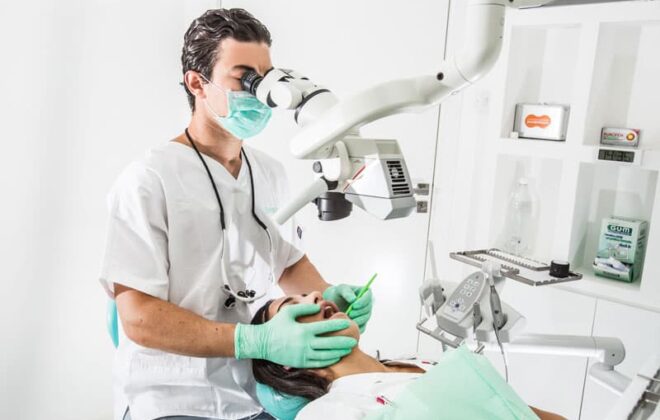When Does a Dentist Refer a Patient to an Endodontist?
Did your general dentist recently refer you to an endodontist? Believe it or not, it is typical for dentists to refer their patients to an endodontist. Rest assured that your oral health will still be in good hands when visiting an endodontist for the first time.
Are you unsure about visiting an endodontist? Continue reading to learn more!
What is an Endodontist?
Endodontists are specialized dentists that focus on maintaining the health of the soft inner tissues of the teeth (or the pulp). While all endodontists are dentists, they benefit from an additional two or three years of specialty training beyond dental school. Specifically, the extra training focuses on diagnosing pain and performing root canal treatment. Simply put, endodontists are specialists when it comes to saving your teeth!
Why was I referred to an Endodontist?
There are many reasons why a dentist would refer a patient to an endodontist. Here are a few reasons!
Root Canal Treatment
If your family dentist believes you require root canal treatment, they may feel more comfortable referring you to an endodontist, particularly if your root canal is more complicated (i.e. multiple canals, back molars, curved roots, etc.). While general dentists can perform basic root canal treatments, endodontists receive significantly more training in this specialized procedure. In fact, a practicing endodontist will perform about 25 root canal treatments per week. On the other hand, the average general dentist may only perform about two root canal treatments per week.
Endodontic Retreatment
Root canal treatments generally see success rates of more than 90 percent. However, the reality is that the treatment can sometimes fail, causing re-infection. As a result, endodontic retreatment or apicoectomy may be required. An endodontist is the most experienced professional to perform these more advanced procedures.
Cracked Teeth and Other Dental Injuries
Your dentist may refer you to an endodontist if you have a cracked tooth. Leaving a cracked tooth untreated may result in a bacterial infection that can affect the tooth’s pulp. Your endodontist will often use advanced imaging (i.e. CBCT scan) to assess for cracks in your tooth and will work with your dentist in restoring your tooth to health and function.
Availability of Specialized Equipment
An endodontist will likely have access to a few extra pieces of technology compared to a family dentist. As mentioned above, the CBCT scan is extremely helpful in taking 3D images of a patient’s tooth before diagnosis. In addition, endodontists use surgical operating microscopes that allow for precise microsurgery. Patients will undoubtedly benefit from the specialized equipment found in an endodontic office.
More Questions?
Are you looking for an endodontist in Toronto? York Hill Endodontics has been providing endodontic services since 1965. Contact our office by clicking here or calling 416-781-5251.



